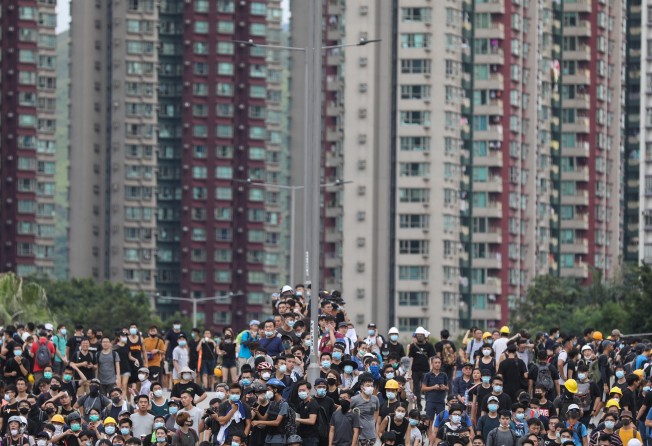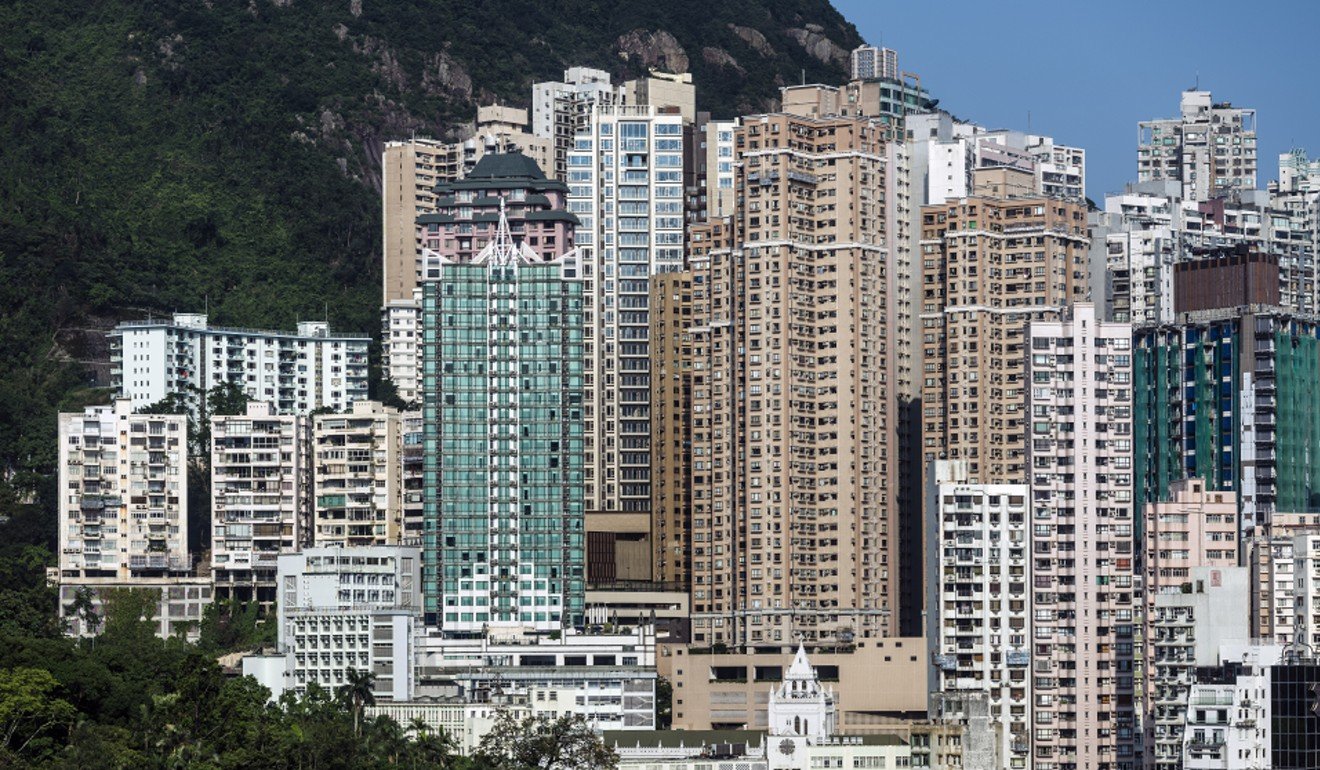How is Hong Kong’s property market affected by the protest crisis and how much can youth anger be linked to home ownership?
- Some complain that recent protests are worse for business than the Occupy movement, yet suggest half-jokingly that crisis might rein in property prices
- But analysts are of the view that a big property market plunge is unlikely. The reason is simple – not enough supply

Hong Kong’s economy is stagnating, if it has not entered recession yet.
Official figures show the city was already in negative growth for the second quarter over the previous three-month period, with an increase of just 0.6 per cent. The remaining two quarters will be worse, according to government assessments.
Naturally, many are linking this to the past two months of massive, anti-government protests, of which no end is in sight. But, to be more accurate, there are multiple other factors contributing to this economic downturn, especially the unpredictable decisions from US President Donald Trump on his administration’s trade talks with China.
At the end of the day, given the intensifying internal troubles and external uncertainties, it boils down to something fundamental: confidence in the city’s present situation and future.
Various businesses are complaining that they are actually facing an impact that is far worse than that of the Occupy movement back in 2014, when protesters blocked roads for 79 straight days.
As the political crisis keeps escalating, this past weekend has seen some of the worst clashes.
The overall pessimism in market sentiment is spreading to the local property sector, the world’s most expensive.
Some have half-jokingly pointed out that the civil unrest cannot be all that bad, as it can at least rein in galloping property prices to some extent.
It may sound ironically logical, but be careful what you wish for – history has proved that it’s not about prices alone; confidence is critical because it brings in business.
Property prices can rise or fall, but that does not necessarily mean more will rush into the market whenever it’s down.
That was exactly the case back in 2003, when Hong Kong was hit by the Sars epidemic and tens of thousands of homebuyers were struggling with negative equity.
“Can always be lower than low,” was the overwhelming sentiment for buying property at the time. Buyers just took a wait-and-see attitude, watching homeowners unable to hang on for long or going bankrupt when the value of their property fell below the mortgage they were paying.

Sixteen years since then, these past two months have seen weekends with more protests than the usual flat sales.
However, some analysts are still of the view that a big property market plunge is unlikely. The reason is simple – not enough supply.
So it becomes a vicious cycle.
The current political and economic uncertainties may not be impactful enough to lower home prices because of “rigid” demand, and young buyers in particular are realising that home ownership is mostly a pipe dream.
At the same time, even with prices adjusting under a poor economic outlook, the lack of confidence will deter homebuyers from putting their life savings into a tiny flat.
The lack of confidence will deter homebuyers from putting their life savings into a tiny flat.
It may sound ridiculous, but this is the reality as well as common sense in such a twisted market.
As the anti-government protests rage and some diehard youngsters resort to even more extreme action, attributing the rage on the streets mainly to the lack of affordable housing is oversimplifying the issues.
Looking at it cynically, one positive aspect of this perfect political storm is that it has exposed all the problems that Hong Kong has swept under the carpet for the past 22 years.
What the city is facing are the serious political and economic consequences of a malfunctioning social system that has led to all kinds of unfairness and injustice, particularly in the distribution of social resources, as many of our officials are just obsessed by the power of the “invisible hand of the market”.
People are talking about the loss of a generation – perhaps even two or more generations. Many young people just do not trust the local government or the one in Beijing.
Political ideology aside, the more complex issue is the loss of confidence in this city itself, not just among the youth but other Hongkongers as well.